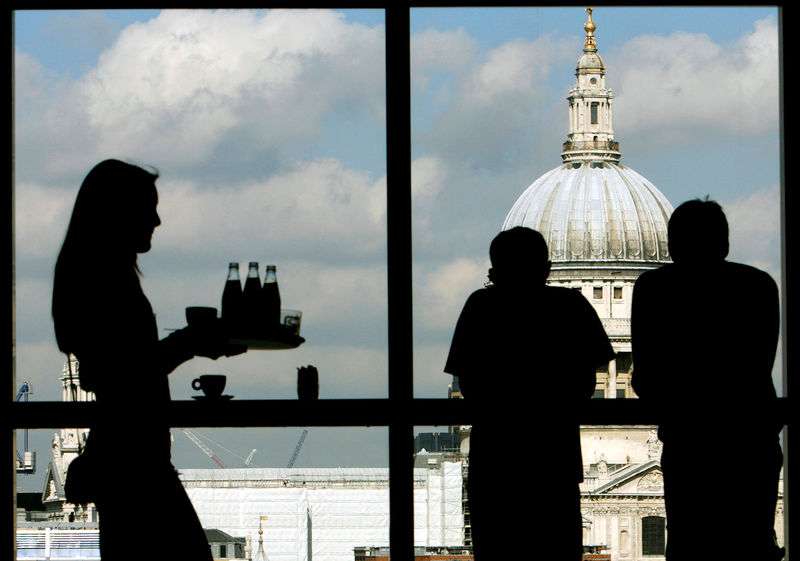By Geoffrey Smith
Investing.com -- The British economy may grow for the first time in six months in February, a closely-watched business survey indicated on Tuesday.
The composite purchasing managers index, a rough real-time proxy for economic activity, rose to 53.0 according to preliminary estimates from S&P Global and the Chartered Institute of Purchasing and Supply, from 48.5 in January. Analysts had expected it to stay below the 50 level that typically separates growth from contraction.
“The sun broke through in February after six months of gloom with a swift and significant jump in output for private sector business," CIPS chief economist John Glen said.
Both manufacturing and services performed more strongly than expected, with the manufacturing PMI rising to 49.2 from 47.0, and the services PMI rising to 53.3 from 48.7 in January.
"Survey respondents cited rising customer demand and improving business confidence in February, due to lower economic uncertainty, fewer supply shortages and falling inflation," the survey's authors said.
The pound rose to its highest level in a week on the news. By 04:45 ET (09:45 GMT), it was up 0.3% at $1.2071, reversing earlier losses.
The news was the second positive surprise of the day for the pound, after the Office for National Statistics said earlier that the deterioration in the U.K. government's finances wasn't as bad as many had feared. The surplus in January - a big month for tax payments - was £6.8 billion (£1 = $1.2092), down from a year earlier but comfortably above some more pessimistic forecasts.
Even so, analysts were quick to warn against sounding the all-clear for the British economy, which continues to experience higher inflation than any other G7 country.
"We still think that GDP will drop in both Q1 and Q2," said Pantheon Macroeconomics' Samuel Tombs in a note to clients, pointing to further likely declines in disposable incomes due to higher energy prices and borrowing costs. He pointed out neither the retail sector nor the construction sector is included in the PMI, and that these two sectors are "at the sharp end" of the trends he mentioned.
